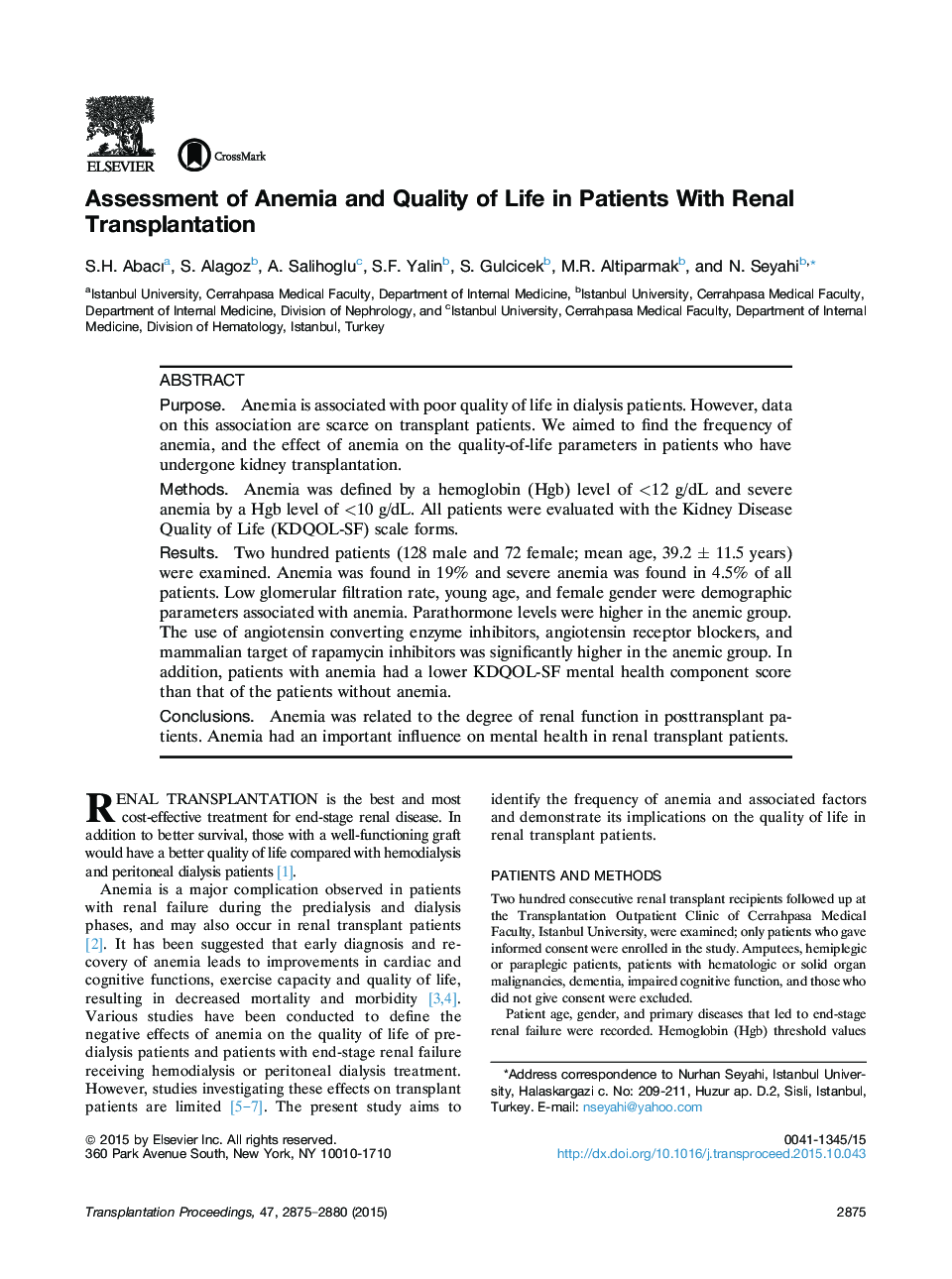| Article ID | Journal | Published Year | Pages | File Type |
|---|---|---|---|---|
| 4255837 | Transplantation Proceedings | 2015 | 6 Pages |
•We investigated the frequency of anemia in renal transplant patients and its association with quality of life.•Low GFR, young age, and female gender were associated with anemia.•The use of ACEI, ARB, and mTOR inhibitors was significantly higher in the anemic group.•Patients with anemia had a lower SF-12 mental health component score.
PurposeAnemia is associated with poor quality of life in dialysis patients. However, data on this association are scarce on transplant patients. We aimed to find the frequency of anemia, and the effect of anemia on the quality-of-life parameters in patients who have undergone kidney transplantation.MethodsAnemia was defined by a hemoglobin (Hgb) level of <12 g/dL and severe anemia by a Hgb level of <10 g/dL. All patients were evaluated with the Kidney Disease Quality of Life (KDQOL-SF) scale forms.ResultsTwo hundred patients (128 male and 72 female; mean age, 39.2 ± 11.5 years) were examined. Anemia was found in 19% and severe anemia was found in 4.5% of all patients. Low glomerular filtration rate, young age, and female gender were demographic parameters associated with anemia. Parathormone levels were higher in the anemic group. The use of angiotensin converting enzyme inhibitors, angiotensin receptor blockers, and mammalian target of rapamycin inhibitors was significantly higher in the anemic group. In addition, patients with anemia had a lower KDQOL-SF mental health component score than that of the patients without anemia.ConclusionsAnemia was related to the degree of renal function in posttransplant patients. Anemia had an important influence on mental health in renal transplant patients.
